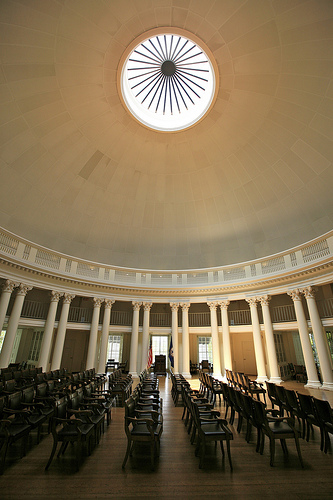Today, the Virginia Supreme Court rebuffed Virginia Attorney General Ken Cuccinelli’s attempts to access the personal correspondence of climate scientists at Thomas Jefferson’s University of Virginia. The court’s ruling found that the university does not constitute a “person” and is therefore not subject to the Civil Investigative Demands—essentially subpoenas—issued by the attorney general under the Virginia Fraud Against Taxpayers Act in 2010.
A circuit court judge said in August 2010 that if the attorney general wants to pursue a fraud investigation, he needs to have some reason to suspect that fraud has been committed. And in the lower court’s eyes, he failed to produce a shred of credible evidence to support his case.
UCS has followed the University of Virginia case closely—supporting the scientists and the university in the media, signing on to two amicus briefs opposing the attorney general’s actions, and organizing 800+ scientists and academic leaders to urge the attorney general to stop his fishing expedition—because the ability of researchers in Virginia to pursue tough and sometimes contentious research was at stake.
You can see a timeline of this nearly two-year charade here.
The high court’s majority opinion did not address the merits of the subpoenas. But in a minority opinion, The Honorable Elizabeth A. McClanahan wrote that she would have ruled against the attorney general because his subpoenas “did not sufficiently state what the Attorney General suspected Dr. Mann did that was ‘false or fraudulent.’”
Perhaps—just maybe—this has something to do with the fact that there is not, and has never been, a legitimate case to pursue. Despite an incredible amount of hyperbole created to infect the national discussion about climate change science, investigation after investigation after investigation after investigation after investigation after investigation (deep breath) has found climate scientists’ research and methods to be sound. Even some climate skeptics called the attorney general’s subpoenas a witch hunt.
Unfortunately, we will continue to hear the protestations of some conspiracy theorists for whom no amount of evidence of the human influence on climate change is enough. I have little faith that today’s developments will stop groups backed by fossil fuel interests from attacking scientists who are in the line of fire simply because they have the misfortune of making discoveries about our environment that are threatening to powerful, vested interests.
The real question is when the anti-science position on climate change will be so laughable that no politician or pundit will want to be associated with it. There was a time when opinion leaders could doubt the link between smoking and lung cancer and get away with it. Let’s hope that the time for climate science is soon.

